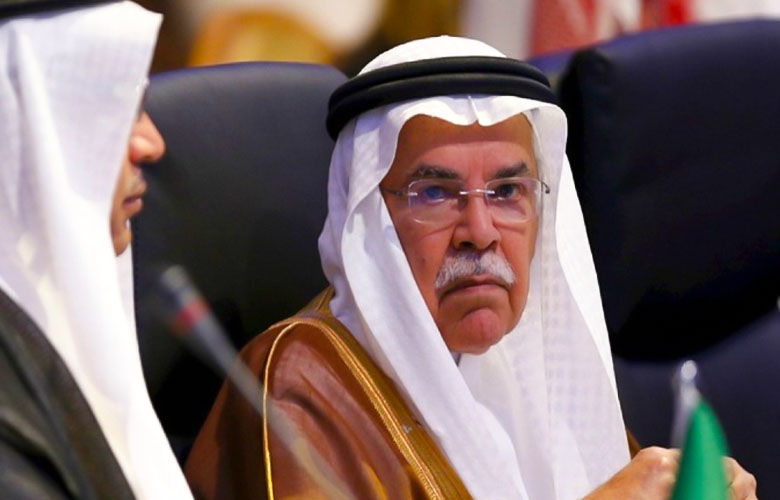Alwaght- A royal decree aiming at carrying out a major government overhaul has dismissed the long-serving Saudi oil minister Ali al-Naimi, the kingdom’s most powerful oil minister who has been holding the post for over 20 years.
Al-Naimi, 80, will be succeeded by Khalid al-Falih, chairman of state oil company Saudi Arabian Oil Co, or Aramco for short.
The decision comes as part of a major government shake-up made by the country’s top administrative man King Salman bin Abdulaziz.
Saudi oil revenues have been hit hard for almost over a year after oil prices fell to critical levels.
In Saudi Arabia, the world’s largest oil exporter, petroleum accounted for almost three-quarters of state revenues last year, according to Wall Street Journal.
Saudi Arabia’ cash reserves have also been burning as the kingdom is engaged in a direct war with Yemen, and supports anti-Syrian militant groups with funding and weapons.
The reshuffle in the government also included other ministries as the decree saw the electricity and water ministry totally scrapped.
Furthermore, some ministries were merged so that the government viewed a decrease in growing expenditures.
The reforms are coming as part of yet bigger plan the details of which were announced on April 25, 2016, dubbed Saudi Vision 2030, in a bid to cut dependence on oil income.
The economists have cast doubts over the pragmatism of the Vision, arguing the kingdom was too dependent to oil to remove the need for oil cash within such a short term.
Ali al-Naimi has pressed the oil exporting bloc OPEC to keep supplying oil to the global markets, despite the fact that there already was an excess in crude provided to the market- an issue led to a sharp drop in oil prices.
Some analysts have said the oversupply aimed at launching an economic war by the kingdom against such rival crude producers like Iran and Russia.
The Saudi Arabian competition with Iran and Russia majorly comes from the devastating Syrian crisis as Riyadh have been supporting the militant groups to topple the Syrian government, but on the other side it faced support to the Syrian President Bashar al-Assad by Tehran and Moscow, Syria’s staunch allies.
However, the Saudi economic war against regional and international powers has backfired, driving Riyadh to fall short of cash, pressing the kingdom to review spending policies.
The Saudi prince Mohammad in Salman, the deputy crown prince and also the defense minister, is directing the country’s economic policy.
Late April, bin Salman unveiled an array of economic reforms and a major plan to remove the kingdom’s dependence to the oil revenues.
Although futuristic in face, the Vision 2030 is seen by experts as being far from realty and simply was a cover-up over the prince’s economic failures which wasted a large amount of Riyadh’s foreign reserves.
Mohammad bin Salman also earlier pushed through cuts in government subsidies, resulting in increased gasoline and other fuels across the kingdom.



























